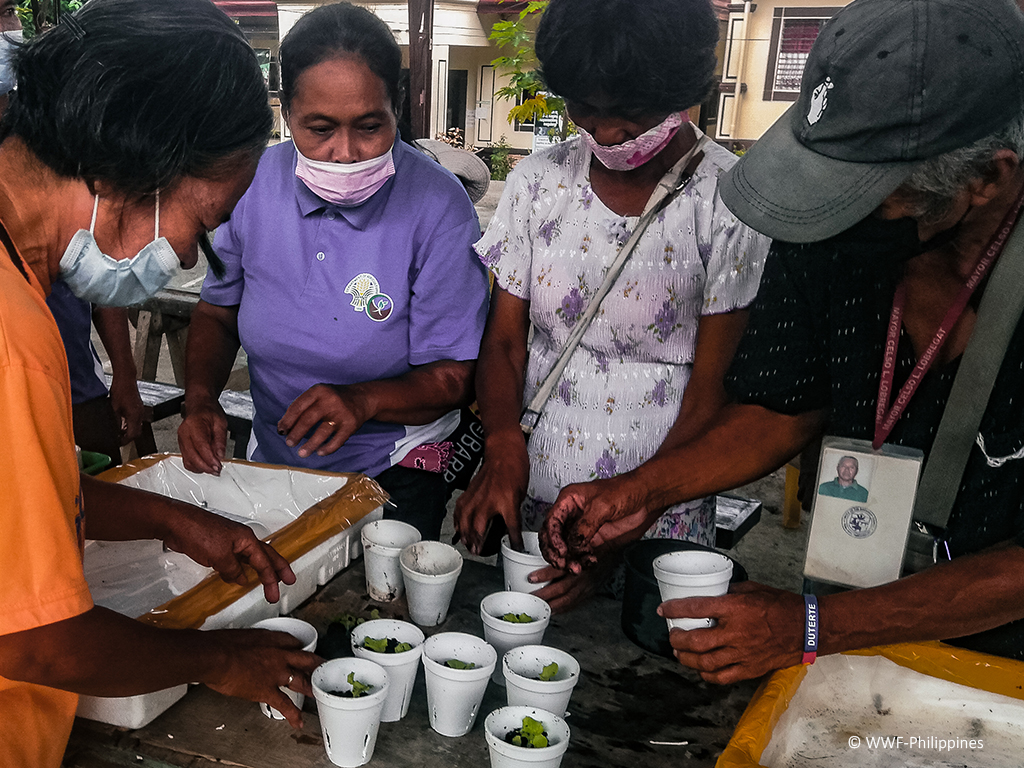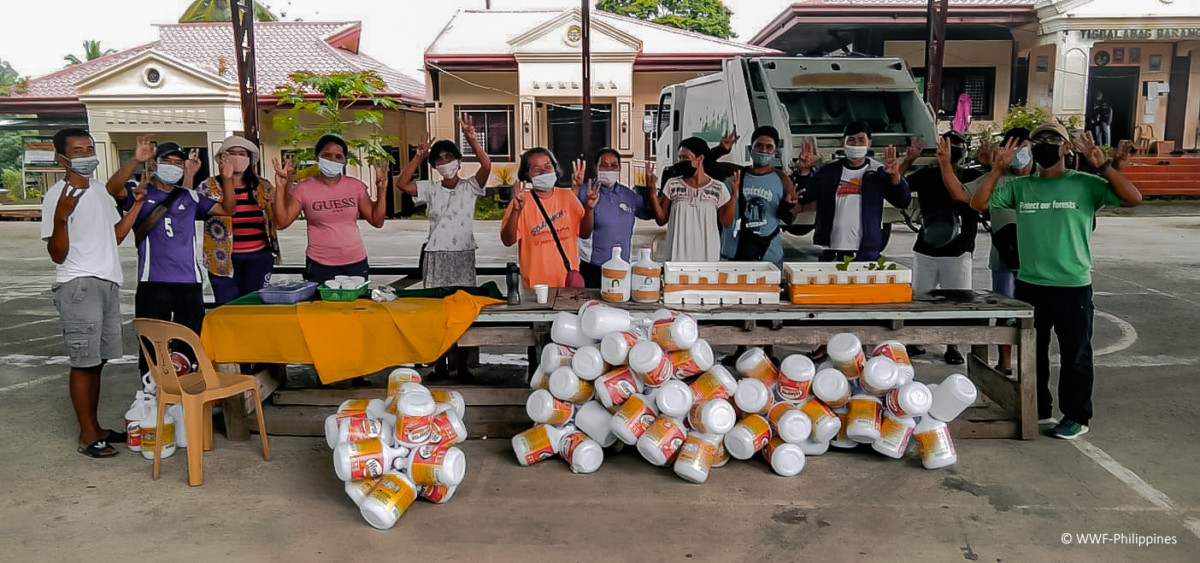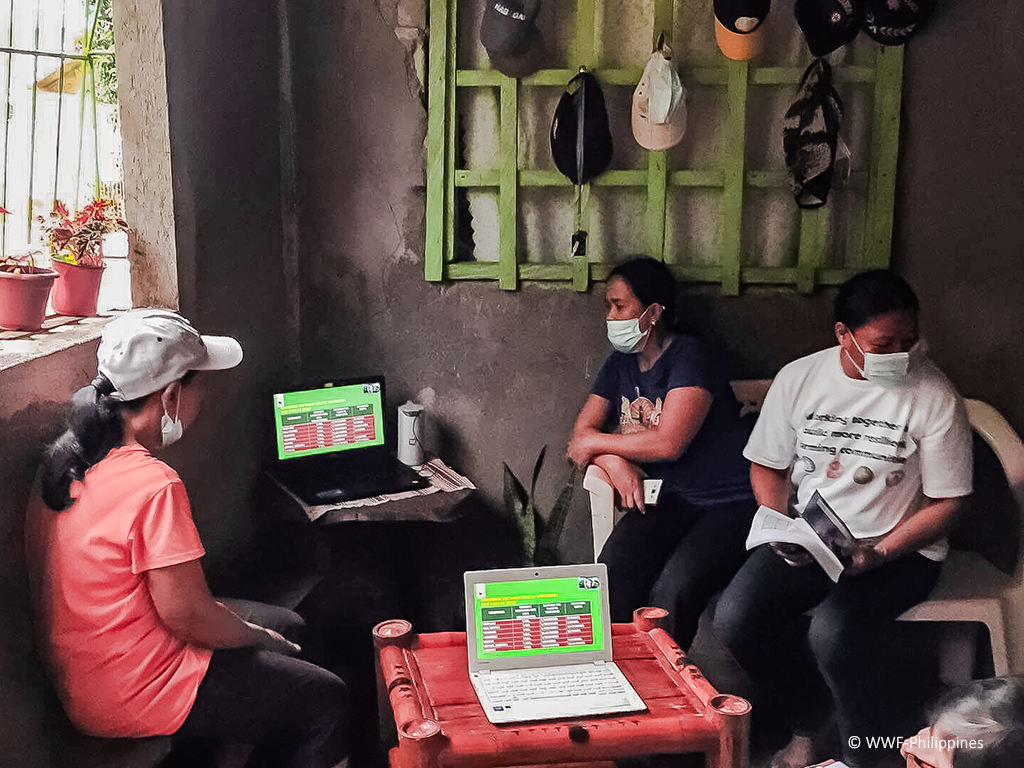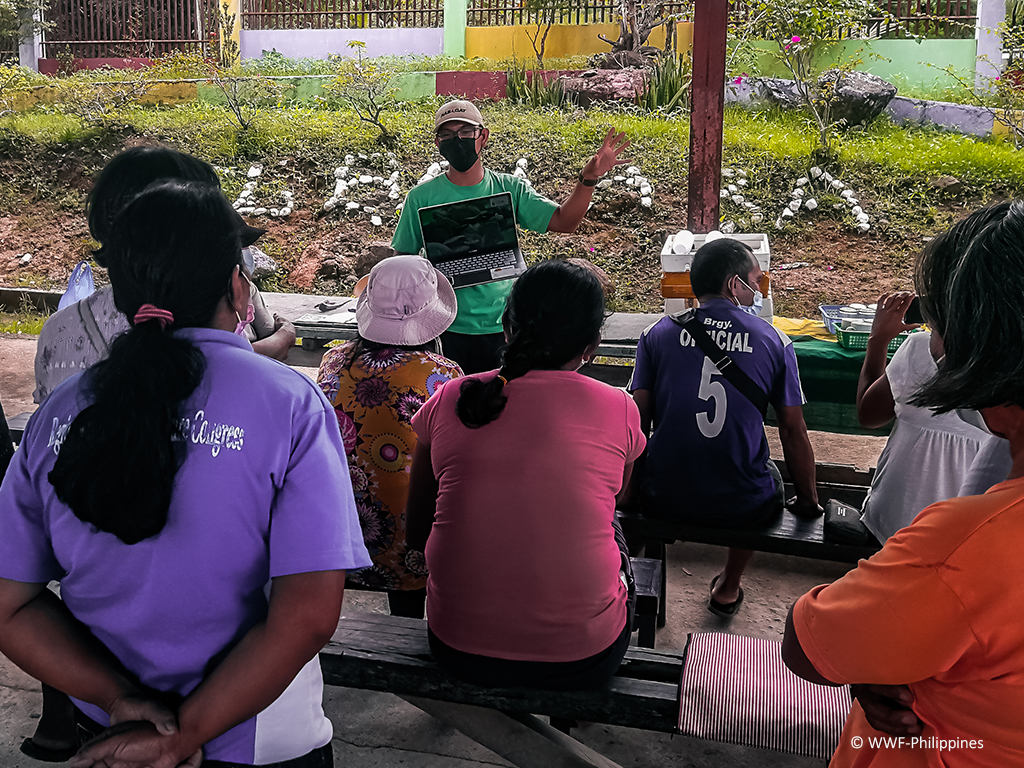WWF-Philippines, BPI Foundation use hybrid learning to run livelihood workshops with farmers
June 2021
A workshop on container gardening is conducted by WWF-Philippines and BPI Foundation with farmers from Ormoc City, Leyte. The workshops, conducted via remote hybrid learning, were the first activities to be held under Project Sibol, a joint effort between WWF-Philippines and BPI Foundation to promote food and livelihood security in communities across the Philippines. Photograph © WWF-Philippines
June, Philippines - The World Wide Fund for Nature (WWF) Philippines and the Bank of the Philippine Islands (BPI) Foundation held the first hybrid-learning livelihood workshops with farmers from Ormoc City, Leyte and Tigbilabag, Zamboanga, last Friday, June 11.
The workshops were the first activities conducted under Project PagSibol. A project of BPI Foundation, Project PagSibol looks to improve rural food and livelihood security through the construction of food sheds in struggling communities across the Philippines.
Food sheds will be constructed in Tarlac City; La Carlota City, Negros Occidental; Bago City and Sibulan, Negros Oriental; Ormoc City, Leyte; Zamboanga City; Bacolod and Baloi, Lanao del Norte; Arakan, North Cotabato; Malita, Davao Occidental; and General Luna, Surigao del Norte.
“We’ve had to find new ways to work around the pandemic, especially with many of our communities suffering more now than ever before. We couldn’t just abandon them to hunger, after all. It was difficult at first, but through hybrid learning we have found a way to reach out to our communities despite the distances between us,” said WWF-Philippines Project Manager Monci Hinay.
Members of Nagkahiusang Gagmay’ng Crop Producers sa Dolores (NGCPD) participated in the Ormoc City workshop, while representatives from the Association of Tagbalabag Sustainable Agripreneurs Livelihood (ATSAL) comprised the Tigbilabag event.
As a preliminary activity to the upcoming food shed, the workshop was held to guide the community in establishing an agri-business endeavor. A lesson on food shed farming introduced farmers to WWF-Philippines’ landmark food security system, while another module ran participants through the basics of hydroponics gardening.

Through Project PagSibol, WWF-Philippines and BPI Foundation are helping communities stand on their own two feet. Photograph © WWF-Philippines
The modules were delivered via pre-recorded videos, while each workshop was overseen by WWF-Philippines. This was to limit the number of people gathered in a single area, though it had the added benefit of allowing the Project PagSibol team to maximize their impact in different communities across the country at the same time.
To keep within current pandemic guidelines, each workshop consisted of only ten farmers from each community. Despite the limited number of participants, Hinay expects the workshops to serve as a good starting point for further, broader work in both Ormoc City and Tigbilabag.

Participant farmers from Tigbalabag, Zamboanga. WWF-Philippines and BPI Foundation is working closely with its partner communities to promote food and livelihood security. Photograph © WWF-Philippines
“Our communities need to be able to take care of themselves. They understand this, and the pandemic has made this all the more apparent. These workshops are the first step in a long process towards helping our farming communities to stand up on their own two feet amid the current climate crisis,” explained Hinay.
Project PagSibol faces many challenges as the Philippines grapples with the COVID-19 pandemic - but rural hunger and livelihood insecurity stresses the necessity of its efforts Through hybrid learning, WWF-Philippines and BPI Foundation are finding new ways to reach out to their rural partners.
For more information, please contact:
Mr. Moncini Hinay
Sustainable Food Systems Program Manager
mhinay@wwf.org.ph
For media arrangements, please contact:
Ms. Angelica Pago
Integrated Communications Manager
apago@wwf.org.ph
+63 949 889 1332
Ms. Chezka Guevarra
Public Relations, Media, and Events Assistant Manager
cguevarra@wwf.org.ph
+63 927 656 6436


